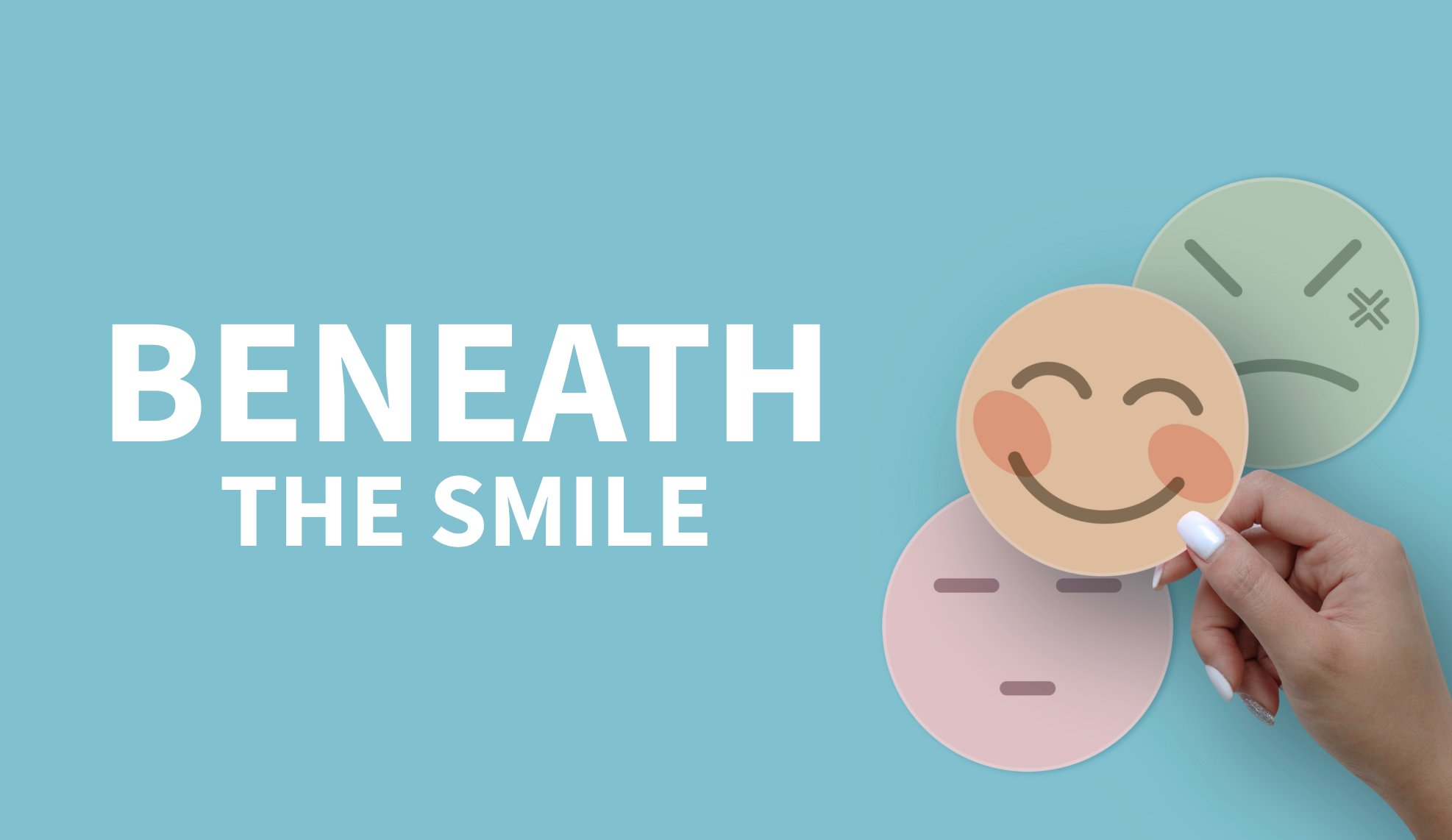May is National Dental Health Awareness Month, and in discussing the topic with friends and colleagues, I’ve found the conversation around dentists and mental health usually goes one of two ways: either the person is extremely aware of the long-standing statistics that show that dentists exhibit higher levels of anxiety, depression, stress, burnout, and yes, suicide. Or more often, the person is completely surprised—even shocked at the facts.
Why? Because to the outsider dentistry as a profession appears stable, secure, predictable, and even leisurely. So what gives?
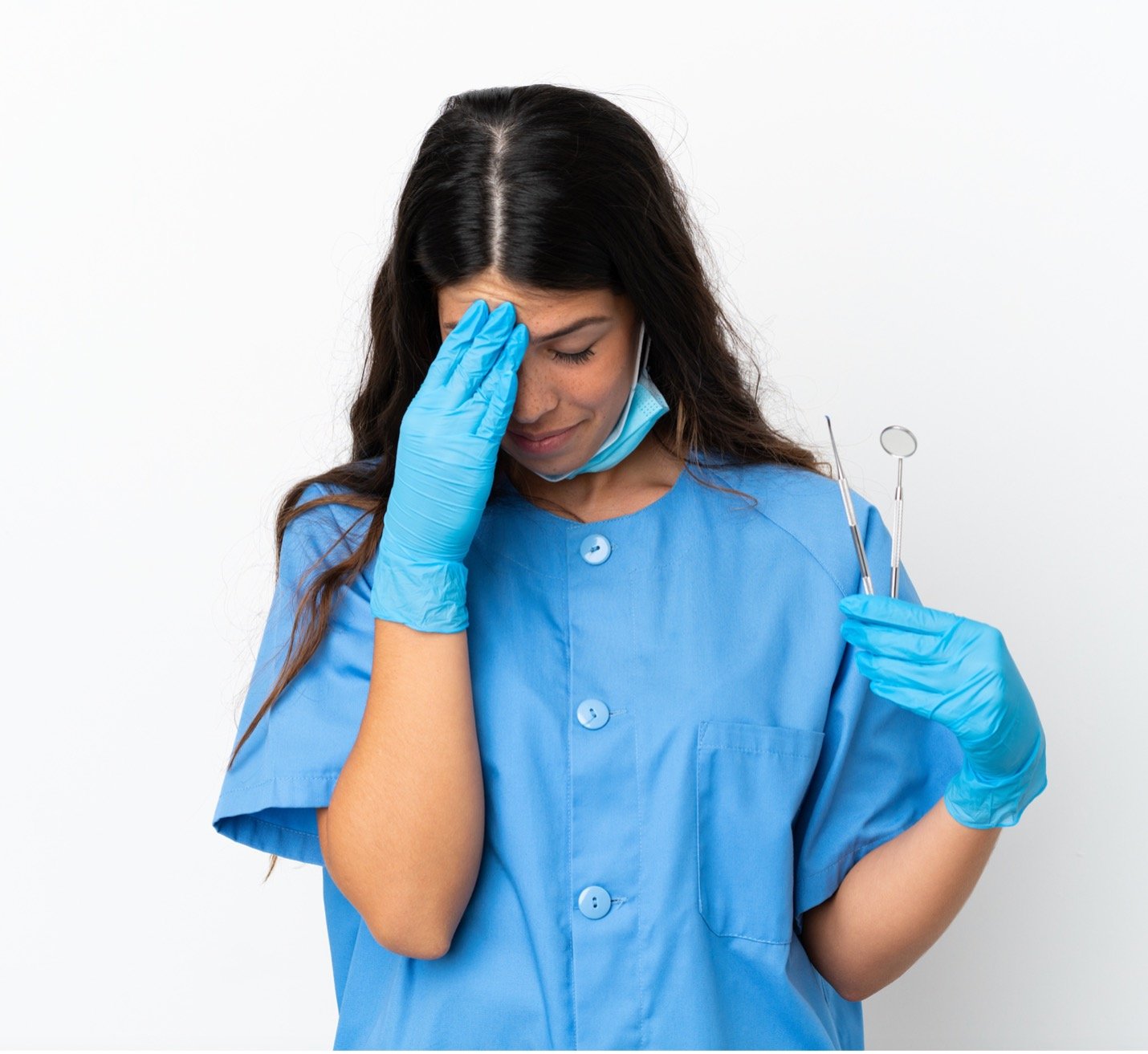
Dental students and dentists report much higher than average rates of mental health issues like depression, anxiety, stress, and even suicide.
Dr. Shea Bess, a practicing dentist and dental lecturer, says that the usual things he hears from people around this issue are things like, “I’m so surprised! It seems like dentists have such cushy lives,” and “But don’t they make a lot of money and only have to work like, four days a week?’”
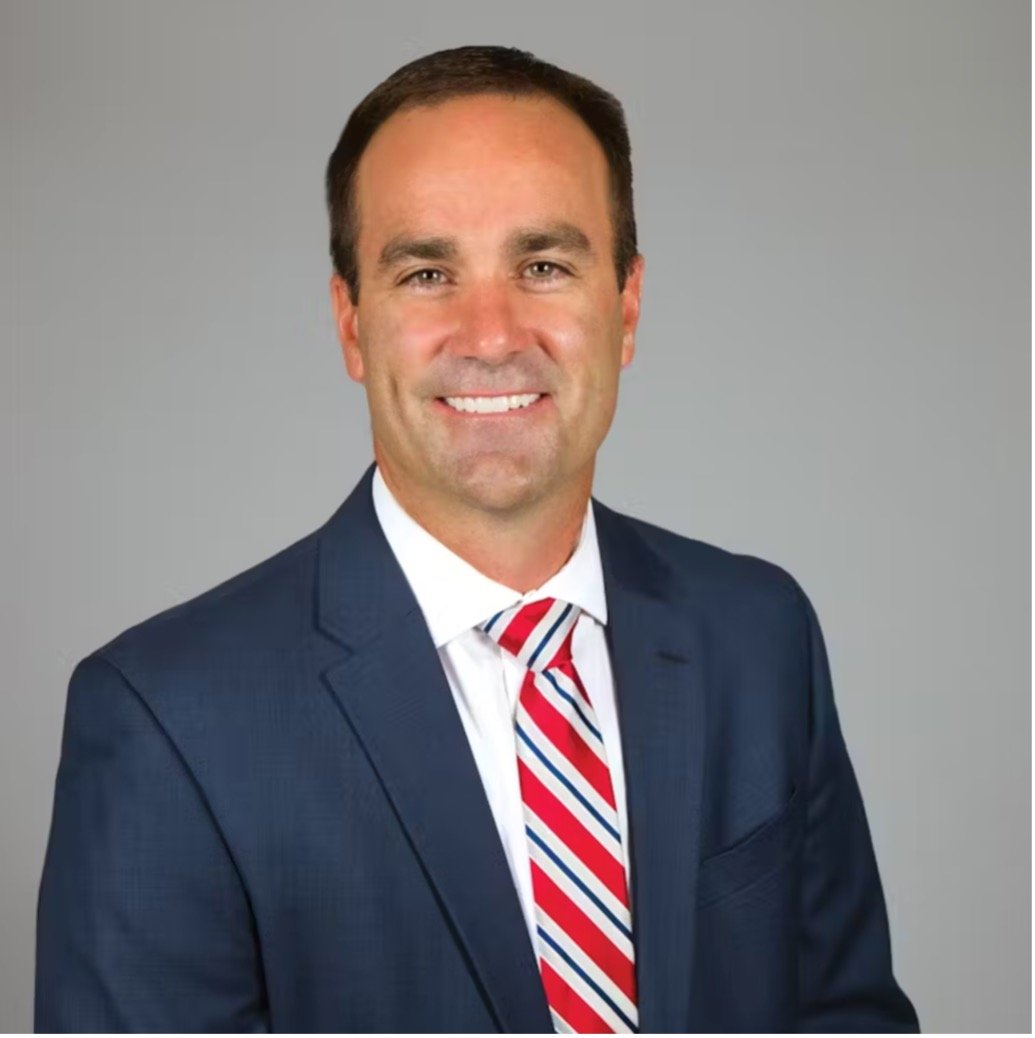
Dr. Shea Bess, DDS
While dentists and dental professionals may not work 80-hour weeks and yes, still enjoy relatively high to above average financial success, it doesn’t change the facts.
Between 2003 and 2021, the percentage of dentists experiencing significant anxiety on a daily basis more than tripled, according to a report from the ADA. Among the ten dentists spoken to for this VICE article, eight of them personally know another dentist that has died by suicide.
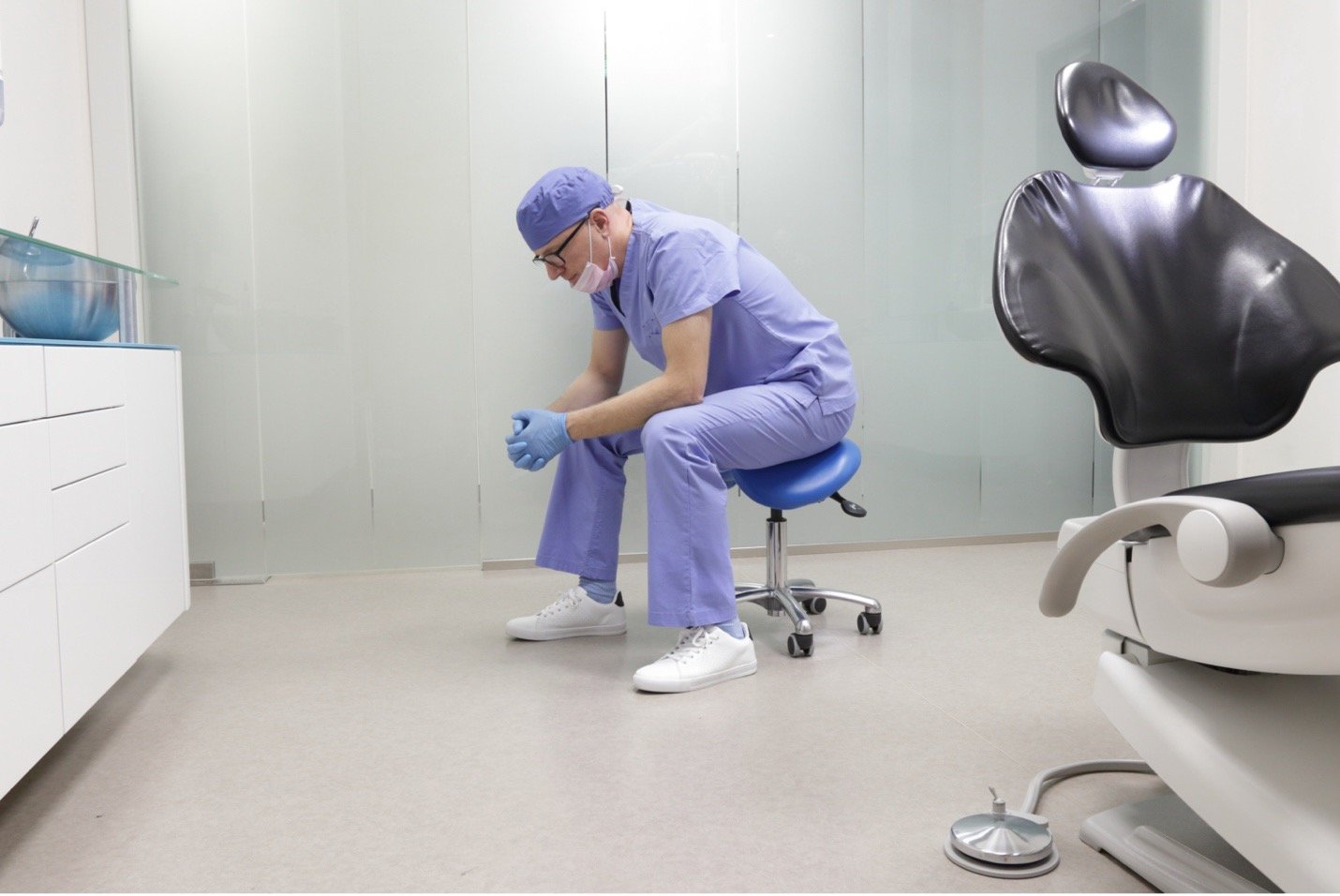
Studies show 25% of dentists struggle with depression—and that only accounts for those who report it.
“I personally know two dentists who I considered friends that died by suicide in the past few years,” remarks Dr. Bess, with a sigh, continuing, “I know it sounds dark, and luckily I’m in a very good place emotionally right now, but I can’t say I don’t understand how someone in our profession could find themselves at a very low point. I’ve never been that low, but the various stresses and challenges dentists face during various points of their careers, at least in my experience, are intense.”
Some statistics even put the suicide rate of dentists at three times higher than other white-collar workers. One study showed that among white collar health professionals, dentists hold the highest suicide rate: 7.18%. Suicide stats for the general population in the U.S. sit at around 0.42%—a staggering and concerning chasm.
Another study found that in the U.S. nearly a quarter of dentists reported struggling with depression.
The first step is to ask why.
Dr. Bess may have some insight—gained unfortunately from personal experience.
The Stress in Dentistry Starts Early
“To put it frankly,” Dr. Bess recalls, “when I was applying to dental school, I was a mess. My nerves and the pressure I put on myself to get good test scores and get in were so out of control that I didn’t sleep much. I carried antacid around with me at all times, because my stomach was always so upset. It was bad.”
He continues, “Then, you think it’s all going to go away once you get into dental school, but my friend, it’s just beginning,” he shakes his head—with comic relief coming easier in hindsight.

Often anxiety, depression, stress, and burnout begin before and during dental school.
“Those first two years of academia are TOUGH. Your professor of histology is a histologist, and your microbiology professor is a microbiologist—and their curriculum is rigorous, to say the least. It’s a lot to take in and it’s very difficult to succeed, grades wise, and that’s by design.”
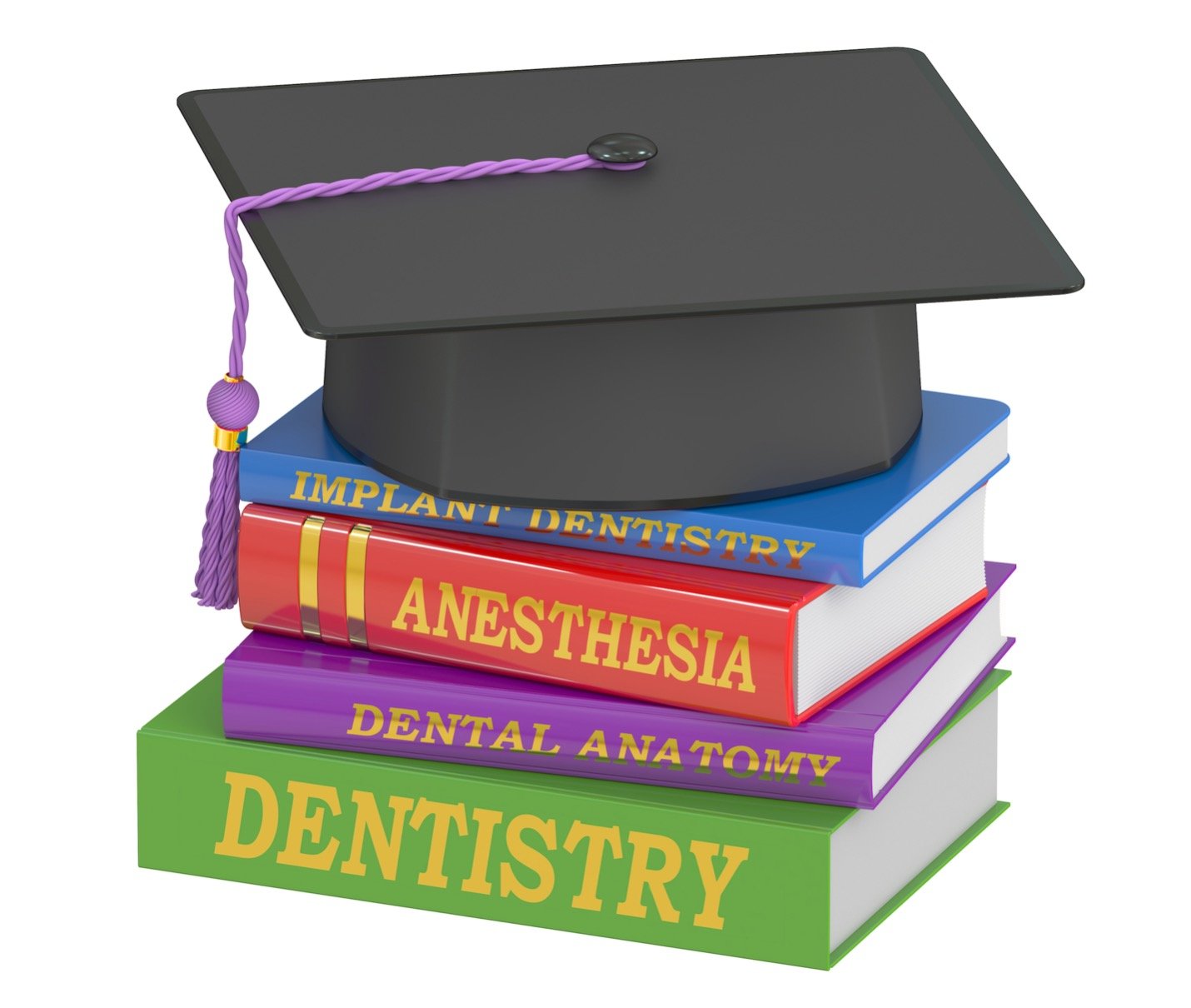
The first two years of dental school often prove the most academically challenging—which often translates to high amounts of stress and anxiety for dental students.
“Luckily, the last two years were much easier and enjoyable, as you’re able to work in the clinic, see patients, and get a taste for the day to day.”
After Dental School: Student Loans and Getting Your Career off the Ground
After graduation, Dr. Bess lined up a job in a practice with another doctor, and he and his wife (who had their second child on the way) moved back to Utah to start their new life.
“I showed up to my very first day of work, and they informed me that they cut my pay against what was promised in my contract, which wasn’t going to work.”
So began another period of stress/anxiety as Dr. Bess worked to find another job and keep his family afloat amidst the looming obligation of student loans.
“I thought making it to graduation would mean smooth sailing, but I got the rug ripped out from underneath in me in a split second.”
Dr. Bess decided to start his own practice which he still runs successfully today, but even that wasn’t without its uncertainties.
“Signing the loan to build out my new office space, buying all of the expensive equipment I needed, and then trying to market my business so I could start to build a case load…I’ll tell you this—I didn’t sleep for quite a few months.”
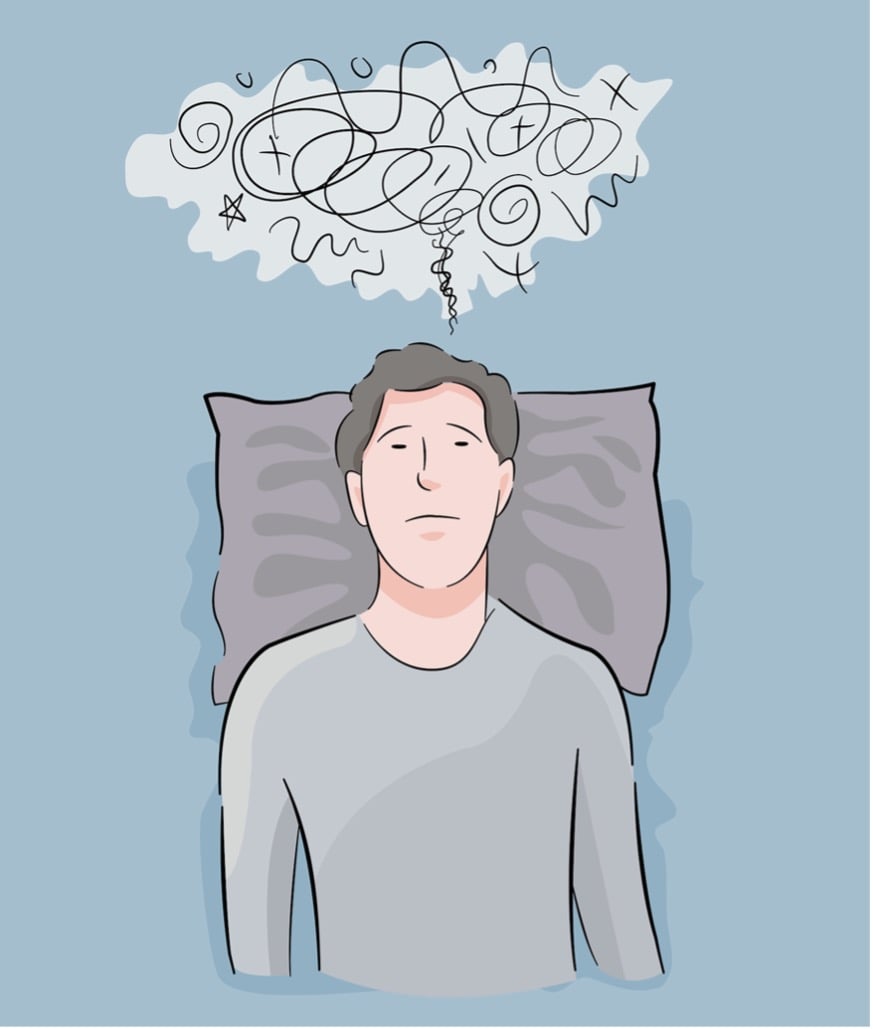
The stresses of starting a practice with no previous small business experience often proves a daunting challenge for new dentists.
He adds, “To top it all off, with dentists, you’re taking these science-minded people and asking them to start a small business from scratch with no formal education in the business aspect of the job, which is arguably just as important to your long-term success as your clinical skills.”
But Dr. Bess considers himself lucky that after a few months, things began getting off the ground. For many dentists, the stress of student loans and turning a profit after dental school lasts for years.

Student loan debt and other financial stressors contribute to the high dentist suicide rates.
In fact, the average student loan debt most dentists graduate with sits at around $300,000, but can go upwards of half a million dollars.
The Pitfalls of Perfectionism and Work/Life Balance in Dentistry
"Another thing I feel is important to point out about dentists in particular is our tendency toward perfectionism. Everything we do is about perfection. I mean, I’m thinning my bonding agent to 12 microns and I’m trying to get my crown prep tapers to be between three and six degrees. There are a million other minute details that I could go on and on about. If you have a tendency toward perfection, going into dentistry throws gasoline on that fire.”
“If you have a tendency toward perfectionism, going into dentistry throws gasoline on that fire.” —Dr. Shea Bess
“The challenge with getting so into perfectionism at work is that if you’re not mindful, it can wreak havoc on your personal life because no one’s is perfect. I’ve been married for a long time, I have great kids, but I’ve gone through periods in parenthood and in marriage where things have been difficult and rocky just like anyone,” he discloses. “But you can’t expect to be able to control every aspect of your home life with perfection, and conversely, you can’t bring your personal problems or stresses to the office. You have to learn to balance and compartmentalize, and that’s one of the hardest things to do emotionally.”
"My wife and I went through a time where our son, who was a toddler, went through some scary health situations, and yet, even when he was at Primary Children’s Hospital just trying to stay alive, or on days when we expected critical test results to come in, I still had to show up to work and give my patients my best; because that’s what they deserve."

Dr. Shea Bess and his family.
He continues, “My patients, regardless of my personal life, deserve a perfect crown prep with margins that are a closed 360 degrees, and they deserve perfect contacts and perfect occlusion. If it is off by so much as the thickness of a single strand of hair, it is unacceptable and it’s less than ideal work,” he relays emphatically. “I hope that helps to paint a picture of the pressure so many dentists are under on a day-to-day basis when it comes to balancing the emotions and demands of their professional and personal lives.”
Patients That Hate the Dentist
Couple the aforementioned issues with the fact that about half of dental patients tell their dentists how much they hate dentists, or hate coming in to see them. Dr. Bess says hearing that every single day from about half of your case load really wore on him at the beginning of his career.
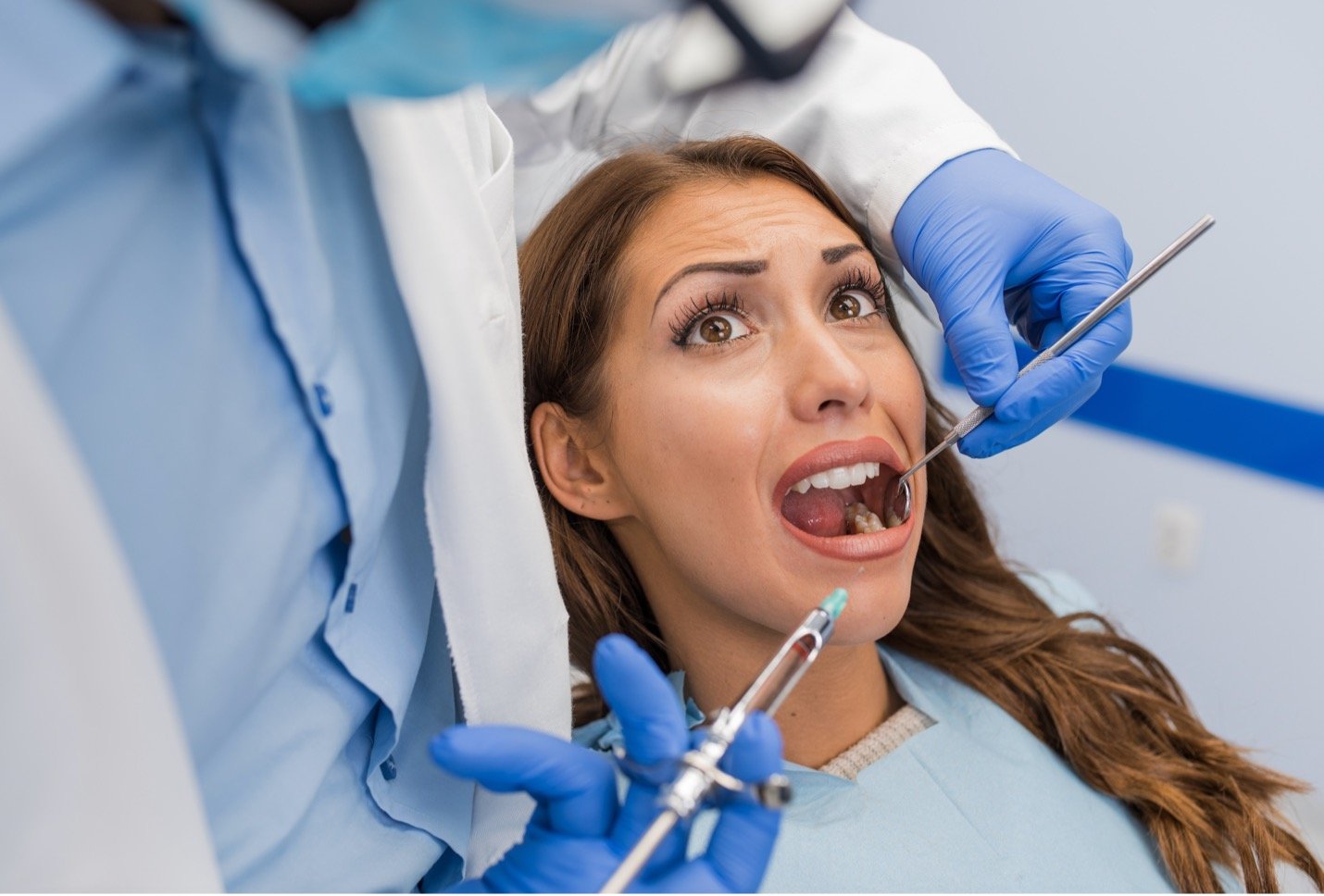
Dentists say about half of their patients everyday express how much they hate or fear coming to the dental office.
“No one wants to be the guy everybody hates, even if it’s not personal. It will really start to get to you if you let it, and that’s something I’ve had to learn to let roll off my back,” Bess says.
Inflation and PPOs
“Another one of the toughest things I think almost every dentist is dealing with right now is PPO fees (set dollar amount payouts from insurance companies), which have stayed the same for years despite inflation rates! When other businesses that don’t have to deal with PPOs adjust to inflation, they increase their prices. But we as dentists are locked in. The fees are set and it’s creating a growing problem for practices to stay financially healthy and for new dentists to pay off their student loans. As someone who’s been lucky enough to be financially stable, it’s starting to worry me,” relates Dr. Bess.
Unexpected Financial Pitfalls
“There’s one more aspect about financials that I think is worth mentioning when it comes to dentistry,” Dr. Bess states.
His eyes get large. “One of the craziest things about dentistry, that I’ve seen one too many colleagues fall victim to, is when you finally get your loans paid off and your business off the ground. You find yourself suddenly having more money than you’re used to. Not only that, but because you have that ‘doctor’ title in front of your name, banks are often willing to loan dentists way more than they probably should, and as a human, I’ll tell you, it’s a hard thing to say no to.”
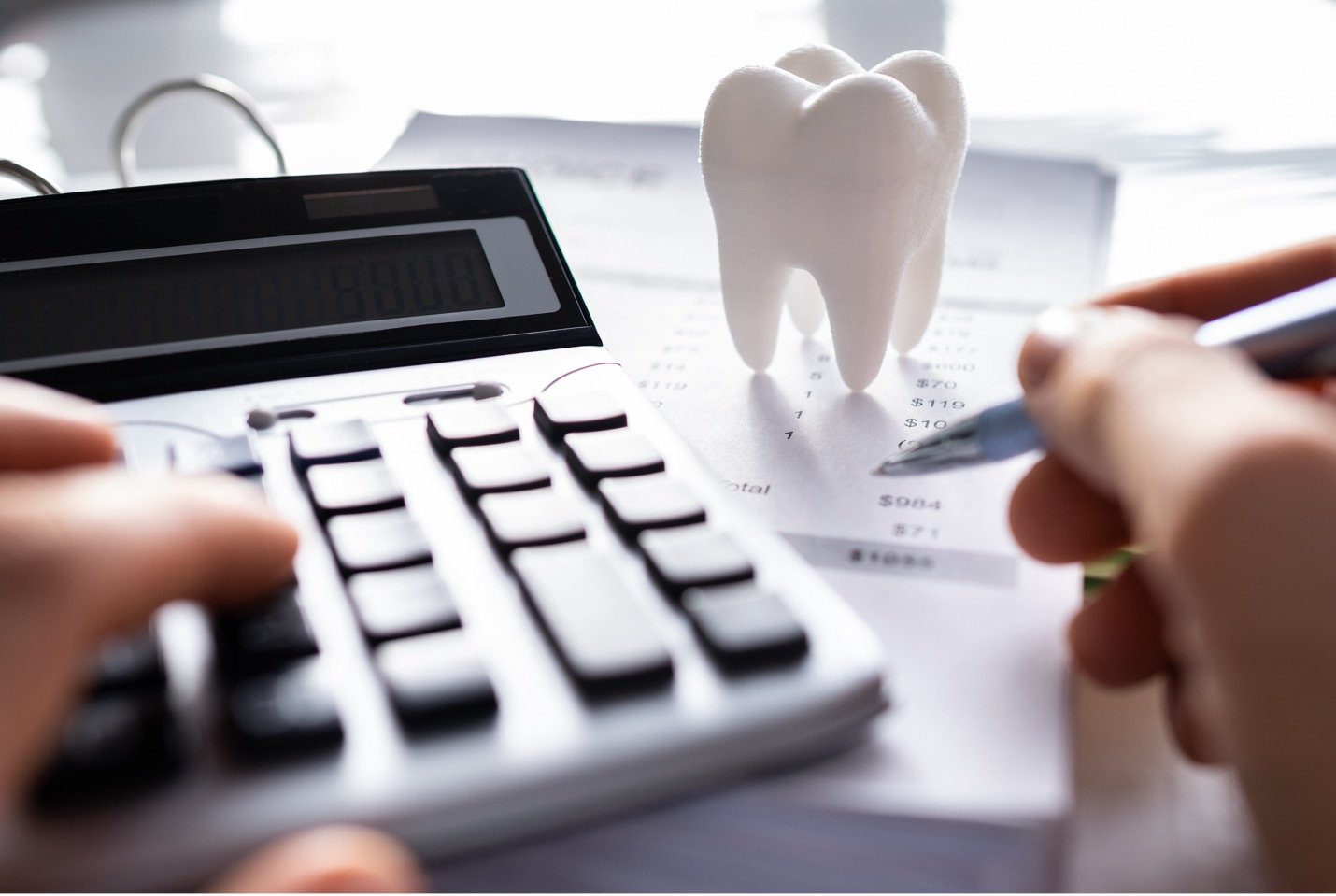
Many dentists find themselves in debt even after paying student loans and getting their business off the ground.
“They’re privileges, but they’re also pitfalls in disguise. I’ve watched too many colleagues make stupid investments, buy one too many nice cars or homes, and then all of a sudden they’re drowning in debt again.”
He adds, “And it’s a tough thing, because as a dentist, you want to project a successful image and stability to your patients. But the key is in the balance and in practicing a little self-control, despite the many opportunities for spending that suddenly appear when you’re doing well financially.”
Substance Abuse in Dentistry
“This isn’t an easy thing to bring up, but I think it’s really important,” Dr. Bess says, taking a more serious tone. “Every dentist has nitrous oxide in their office, and on top of that, it’s easy for them to call a supply company and get pain and or anxiety pills delivered to their office for pre-and-post-surgery patients.”
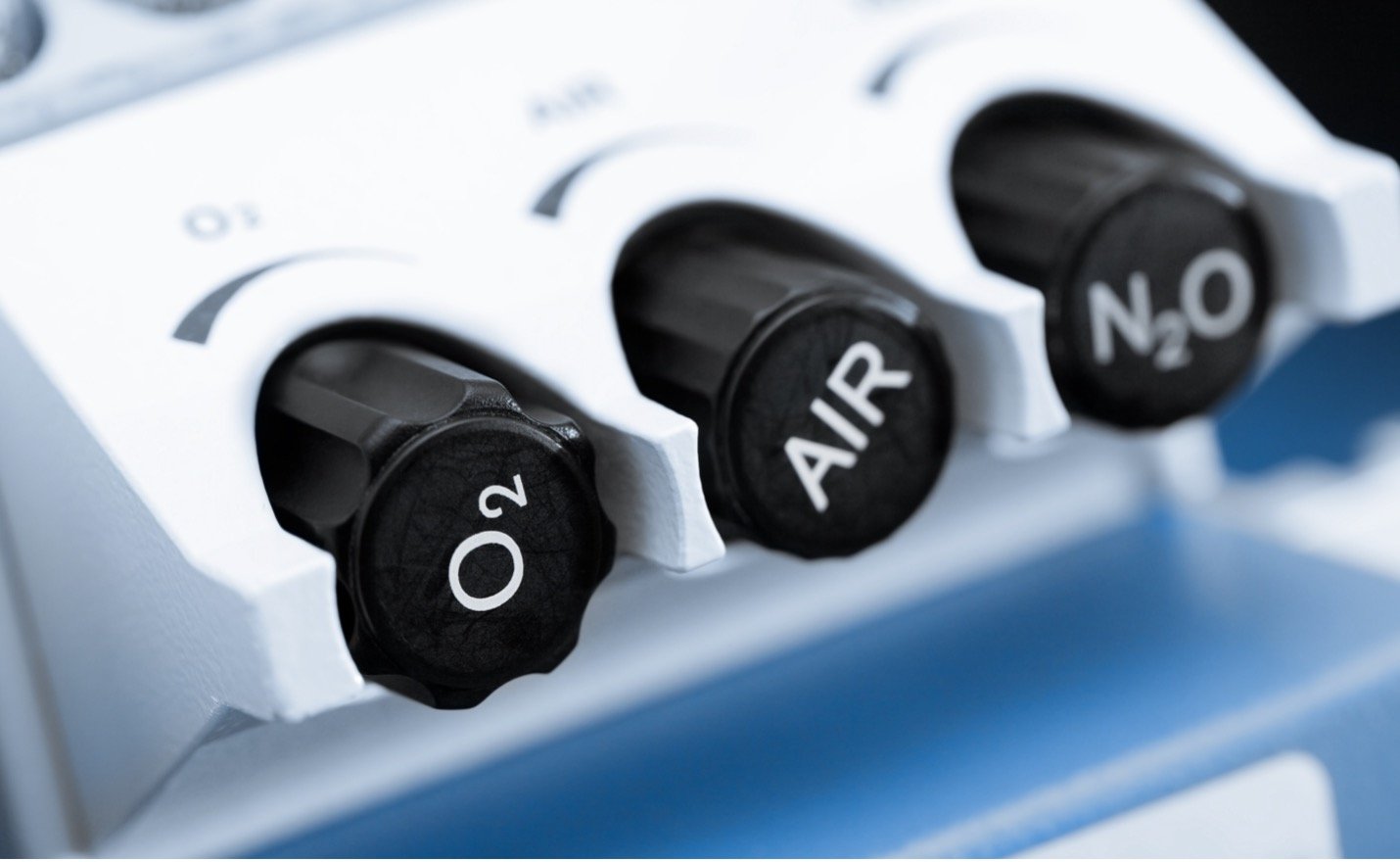
Nitrous oxide helps relax anxious patients, but also runs the risk of addiction and abuse by dentists.
He continues, “Dentists are just humans, and I’ve seen a lot of them fall victim to the throes of addiction because of their ease of access to these controlled substances—especially if they’re under other pressure like financial debt, trouble at home, or even the very common neck, back, shoulder, hand, and wrist pain dentists often encounter at some point in their career.

Easy access to narcotics puts dentists at high risk for abuse and addiction—a huge contributing factor to depression and suicide.
But he laughs, “I know I’ve made it sound like being a dentist is like playing whack-a-mole when it comes to avoiding so many of the issues that contribute to our profession’s high rate of depression, anxiety, and suicide—but I earnestly believe that if you educate yourself, practice everyday wisdom and common sense, and you put resources in place ahead of time that will make it easier to avoid falling victim to some of these things, you can have a wonderful, happy, successful career as a dentist.”
Wellness Habits and Coping Mechanism for Good Mental Health in Dentistry
Among the many experts that have weighed in on the topic, Dr. Bess shares two crucial practices that have helped him cope with the stress, anxiety, and even depression during challenging times throughout his career as a dentist.
“For me, spirituality and exercise have saved my sanity,” he shares.

Setting aside time for exercise not only hugely benefits physical health, but mental health too.
“Physical exercise—like doing regular cardio, getting outside, and lifting weights, does wonders. Also, doing specific exercises for avoiding head, neck, and back injury, as well as keeping my hands and wrists agile through a stretching and exercise protocol, helps keep pain at bay.”
He adds, “If someone took spirituality and my daily exercise away from me, I could go to a really dark place.”
Expert Advice for Coping and Cultivating Good Mental Health as a Dentist
Sue Jeffries, a former registered dental hygienist (RDH), quit her career as a working hygienist to start the Dental Mental Network—whose mission statement is to “Help dental professionals with mental health issues survive and thrive by helping to remove the stigma surrounding mental health issues, offering support and resources, and providing a platform for sharing their stories.”
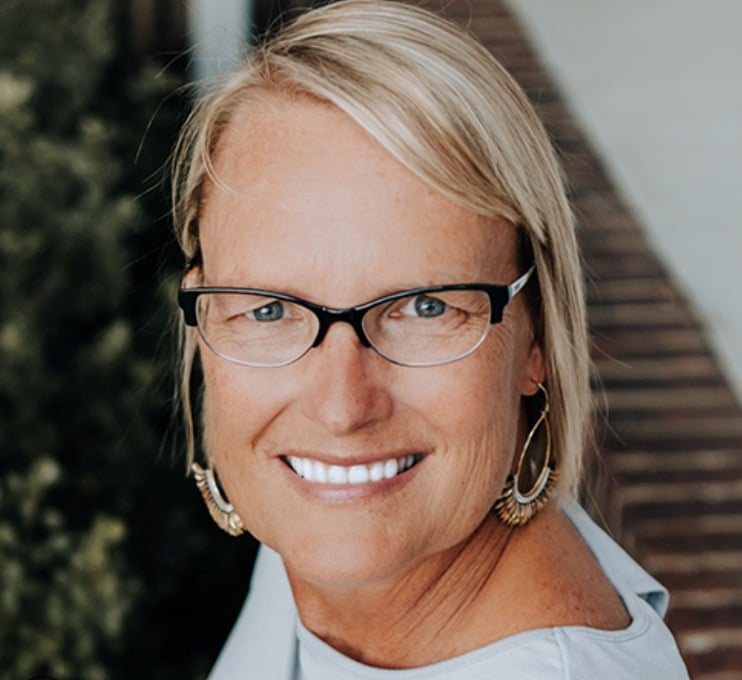
Sue Jeffries, BSDH, RDH and founder of the Dental Mental Health Network.
With the month of May being National Mental Health Awareness Month, what better time than now for dentists to take an account of their mental health, to incorporate some healthy mental wellness practices, and if needed, reach out for help?
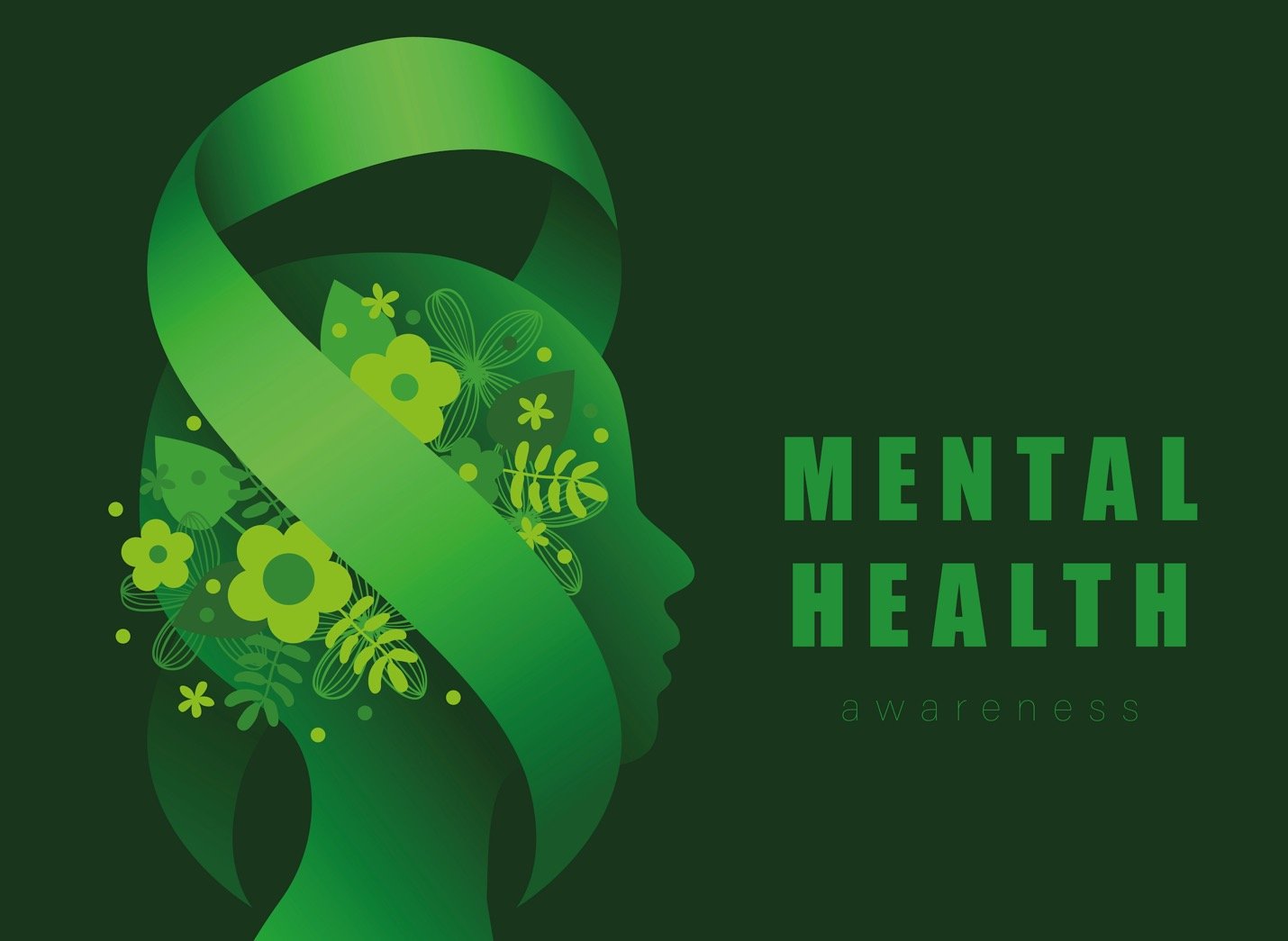
May is National Mental Health Awareness Month in the U.S.A.
While seeing a therapist and if needed, a medical doctor, can be the most important step in recovering from depression and anxiety or in reducing stress and burnout. There are also things dentists and dental professionals can do at home on a daily basis to begin feeling better.

Seeking medical attention and therapy remains the gold standard for addressing acute mental health issues.
Sue Jeffries suggests starting small, like sharing your problems and frustrations with a trusted friend or professional, taking care to work sensible hours, and leaving time for rest and relaxation such as reading, quality time with family, and fun.
She also says, “Things like mindfulness and meditation can also help you throughout the day. Practicing mindfulness allows you to focus on your breathing in the present moment. Doing so can cause you to let go of past regrets and worries about the future. Even a few minutes each day can lower your stress significantly…”

Mindfulness, yoga, spiritual practice, and breathing techniques can do for relaxation and lowering stress.
So if you’re struggling, consider:
- Starting a light exercise and daily stretching routine
- Talking to a friend or colleague
- Reaching out to a therapist for help
- Seeing a medical doctor to discuss options, including medication
- Practicing mindfulness, meditation, and spirituality
- Cutting down on work hours
- Making time for longer, higher quality sleep
Most importantly, don’t feel ashamed to ask for help. Most dentists and dental care professionals don’t realize they’re not alone in this fight—and knowing you’re not an outlier can be healing in and of itself. In fact, many state dental associations offer wellness being programs that partner with psychologists in the area, and even offer peer-to-peer discussion groups. The ADA has many resources for dental health professionals looking for mental health help as well.

There are resources and hope for dentists struggling with depression, anxiety, and suicide ideation.
If you or someone you know is struggling with depression, anxiety, or thoughts of suicide, and need immediate help, please dial 988.

To learn more about Ultradent’s wellness initiatives aimed at helping dentists thrive at work, click on the following articles:


